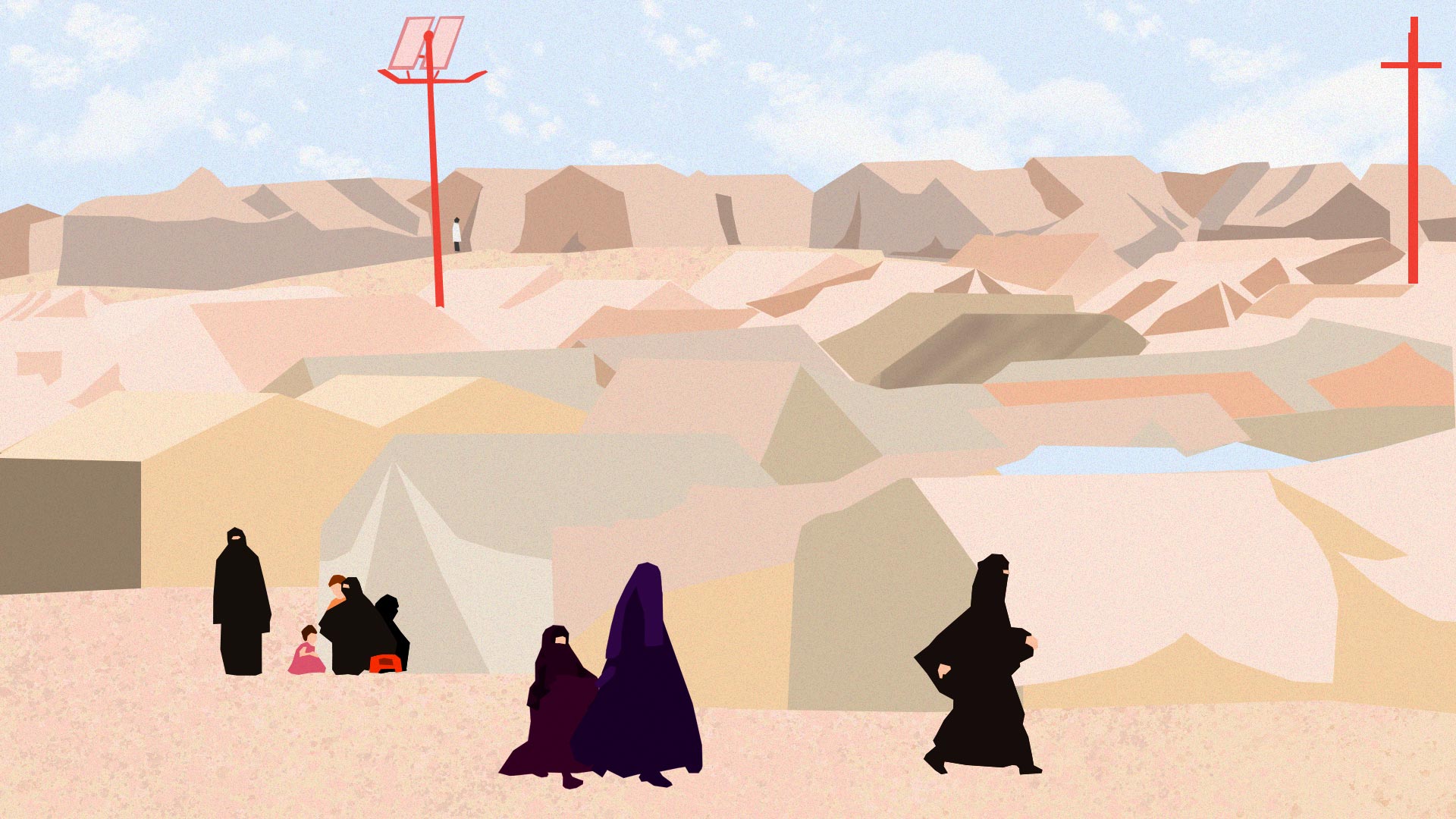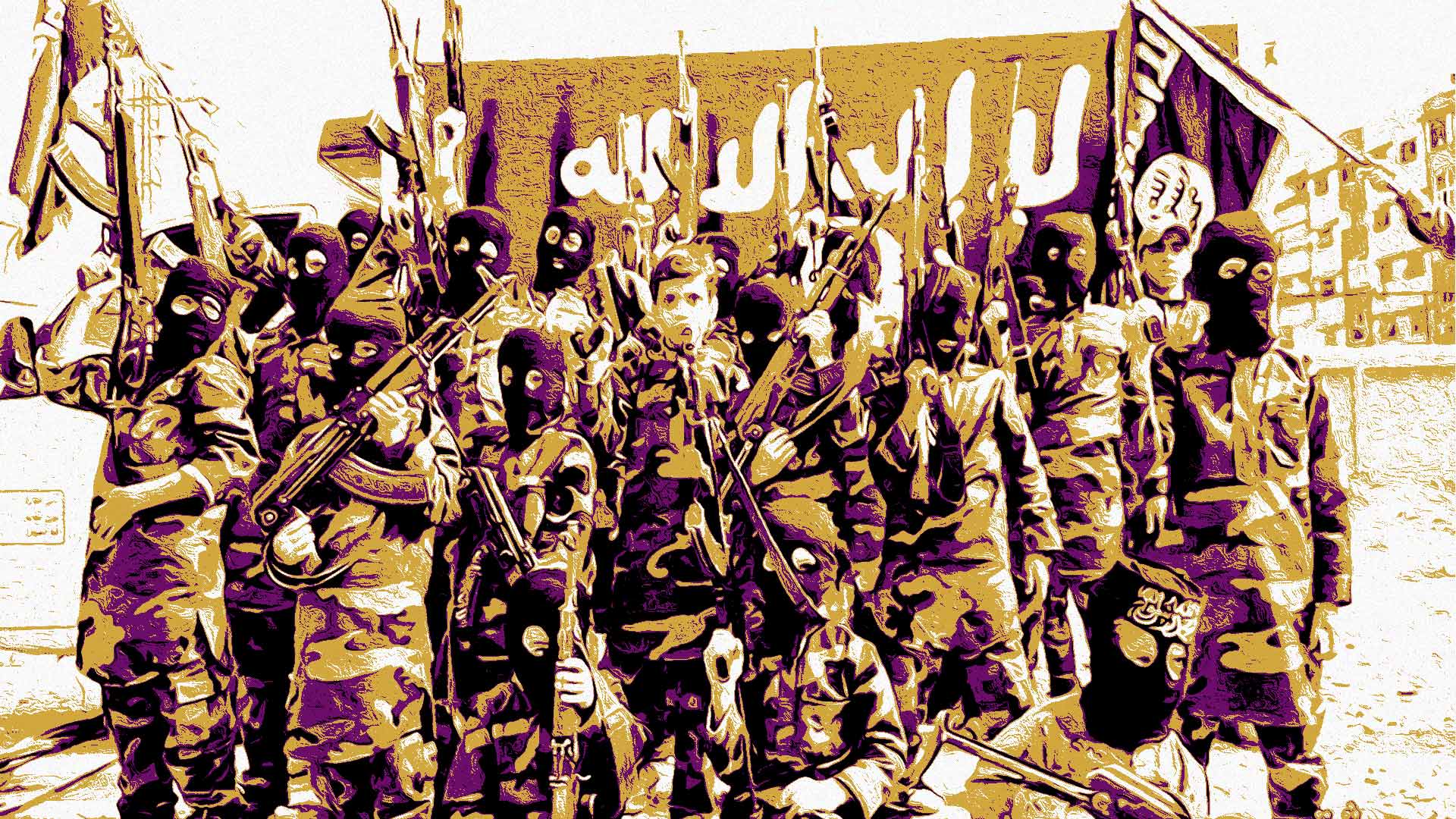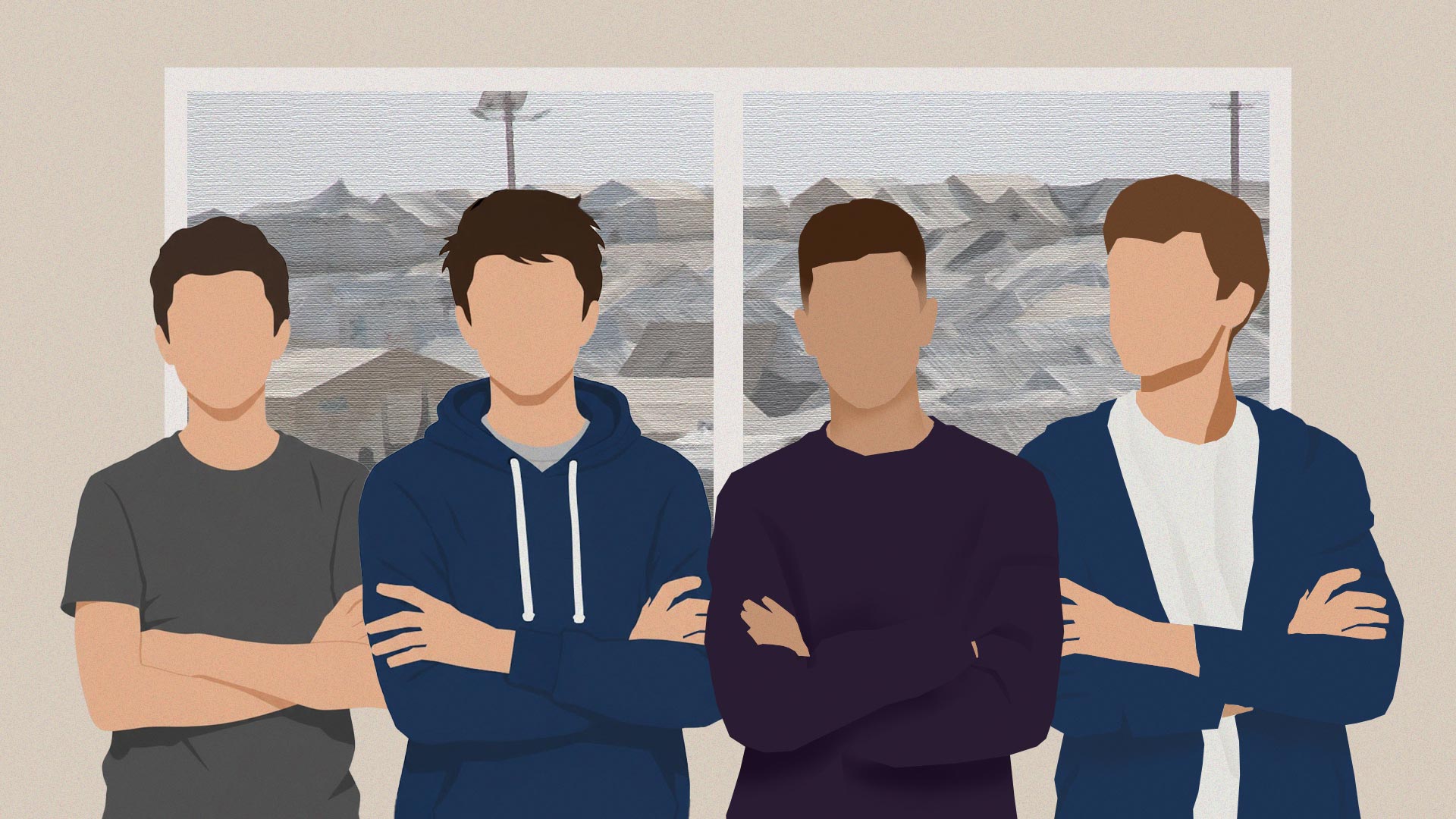Ifriqiya in Transition
Latest episode
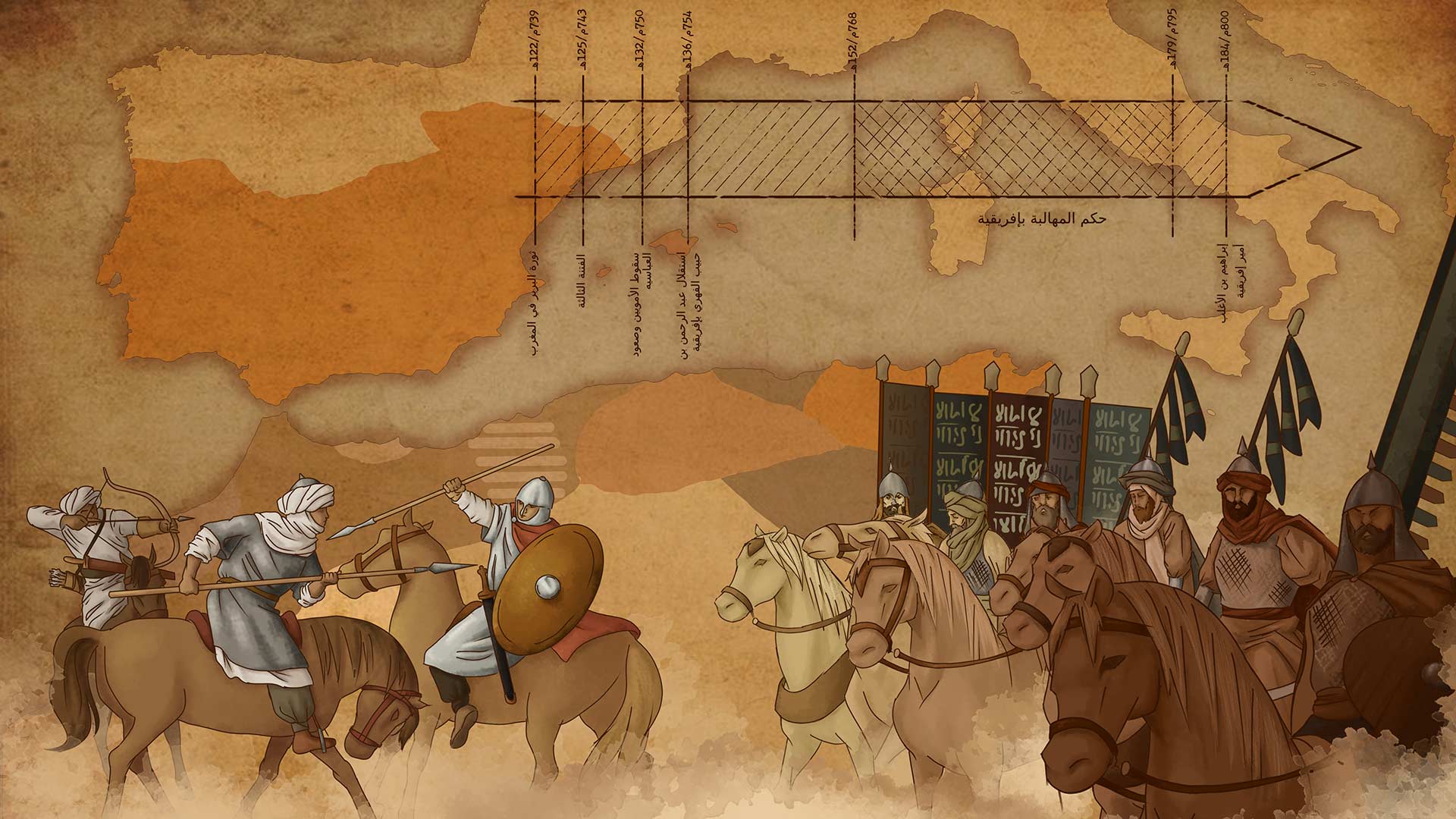
Berbers and Arabs: Revolts and New States
ALL EPISODES
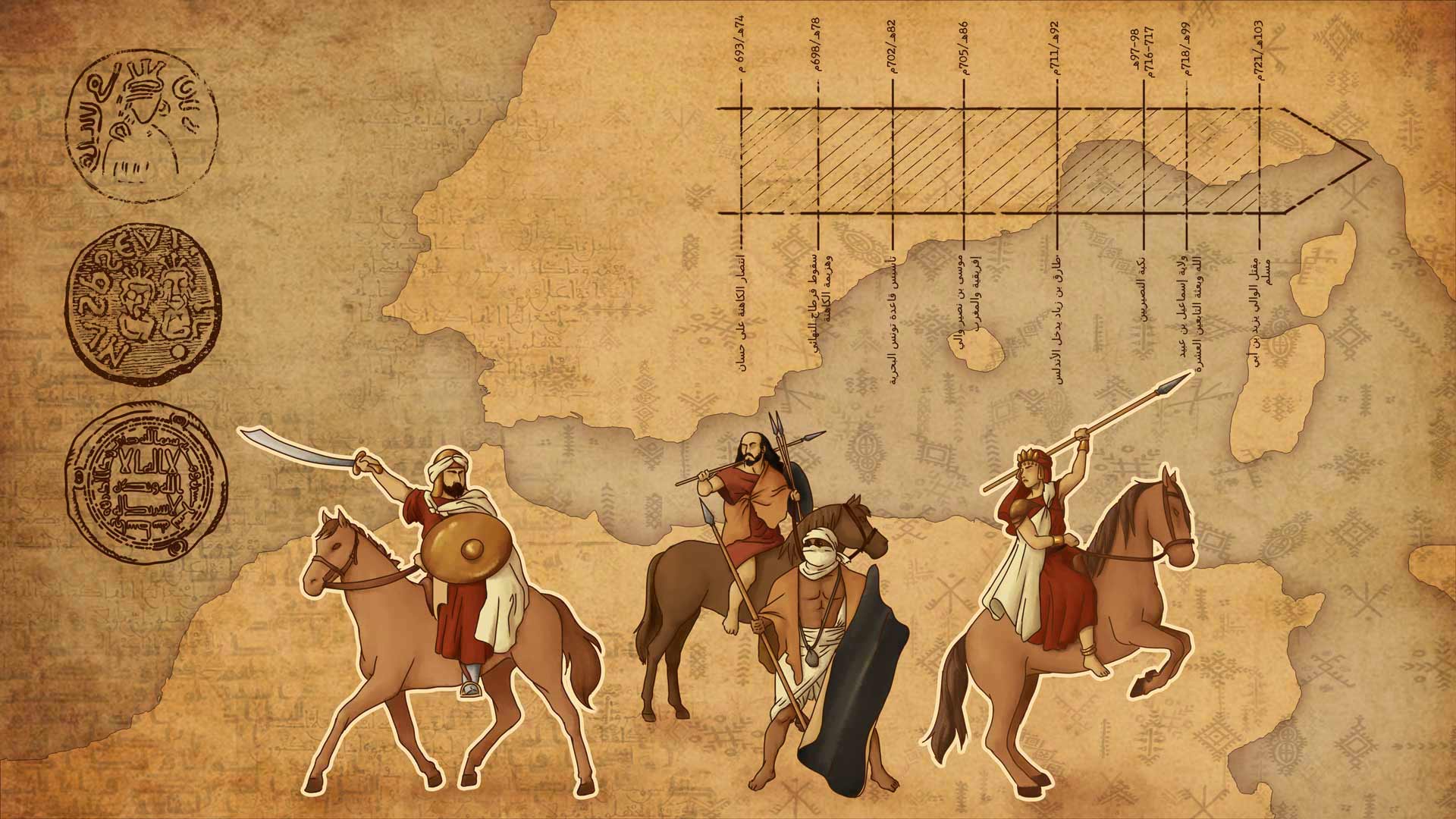 | EPISODE 5Barbarian Knights: From Resistance to Conquest | How did Byzantium react to the seizure of Carthage? What religion was the Kahina, queen of the Aurès Berbers? What is the second military base established by the Arabs in Ifriqiya? Who was the first governor of the largest Umayyad province? In what context did the resisting Berbers join the Arab troops? | |
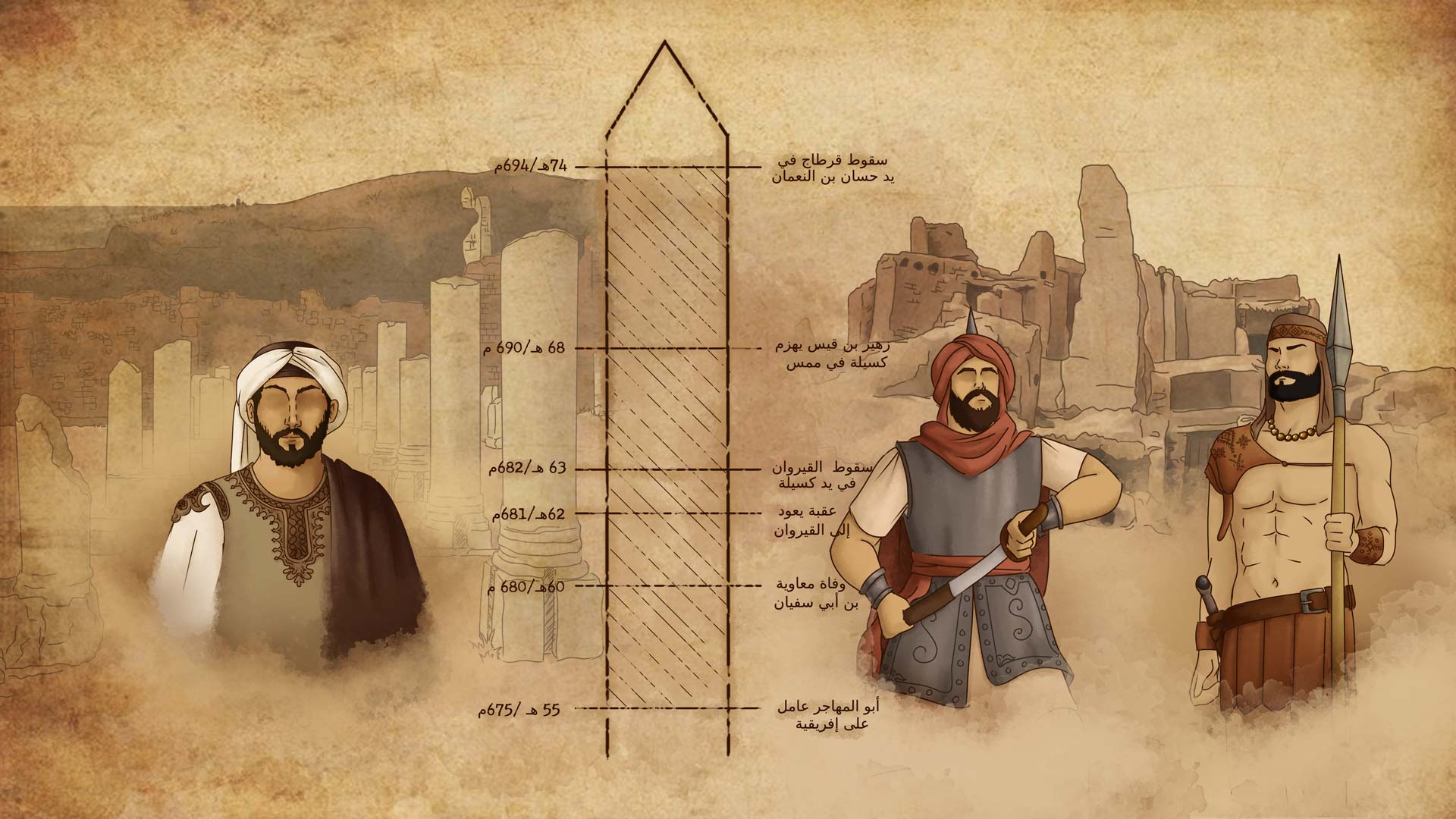 | EPISODE 4The Fall of Kairouan and Carthage | After being revoked by Muawya from his position, who appointed Oqba Ibn Nafaa as governor of Ifriqiya? Which of the following names refers to the Berber leader who killed Oqba Ibn Nafaa in around 63H/682 AD: Koceila, Kacîla, Aksel or Caecellus? Ten years after losing Kairouan, how were the Arabs able to capture Carthage? | |
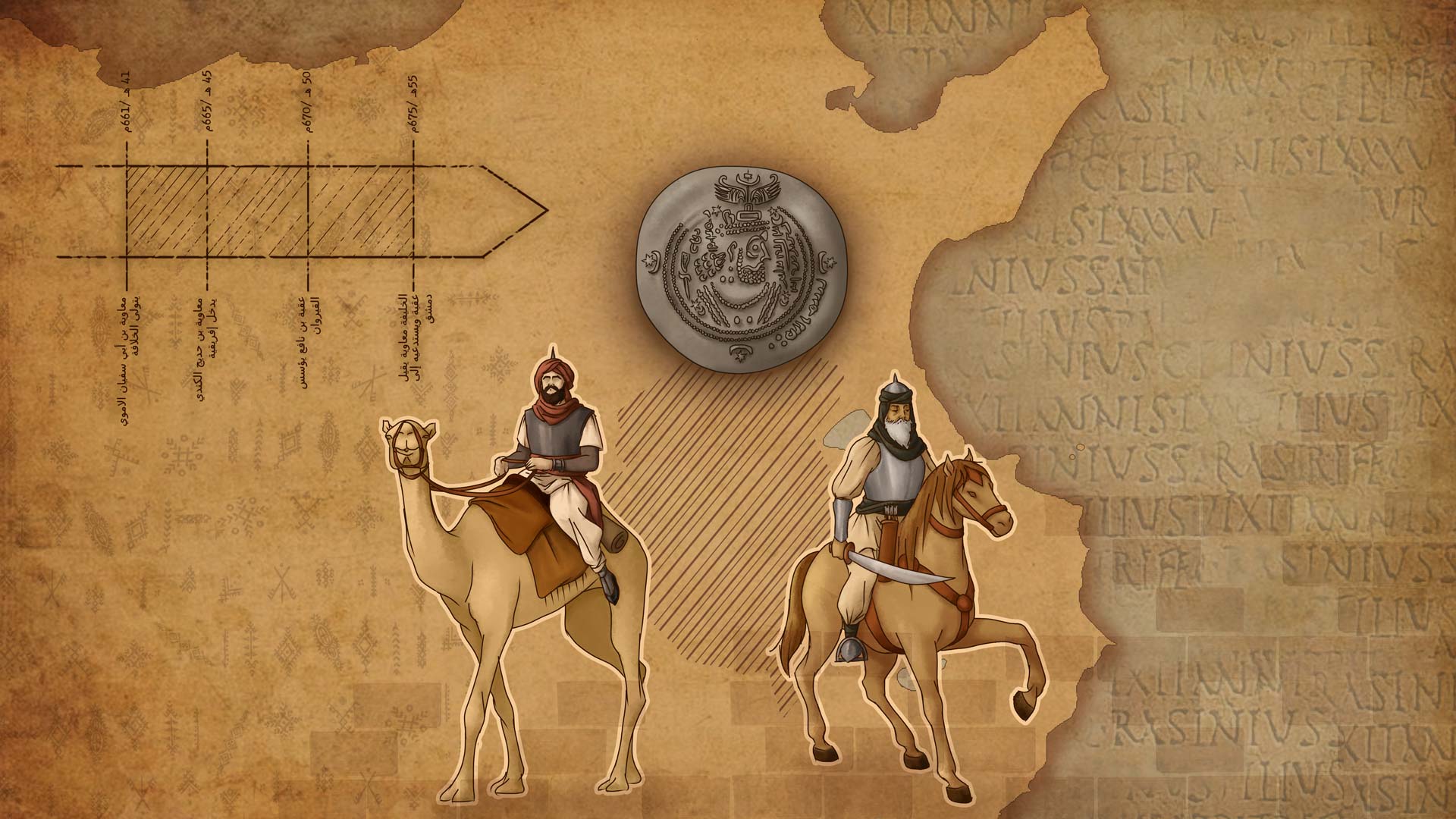 | EPISODE 3Kairouan: From the Qarn Mountain to the Plain of Gamonia | Why did Amr Ibn Al-As take the side of Muawia Ibn Abi Sufyan during the Great Discord ? Who is Muwayia Ibn Hodeyj and why does the commentator Ibn Abd Al-Hakam minimize his role in the conquest of Ifriqiya ? Was there a Kairouan before that of Oqba Ibn Nafaa ? Is it true that the site of the current Kairouan was uninhabited before the arrival of the Arabs ? | |
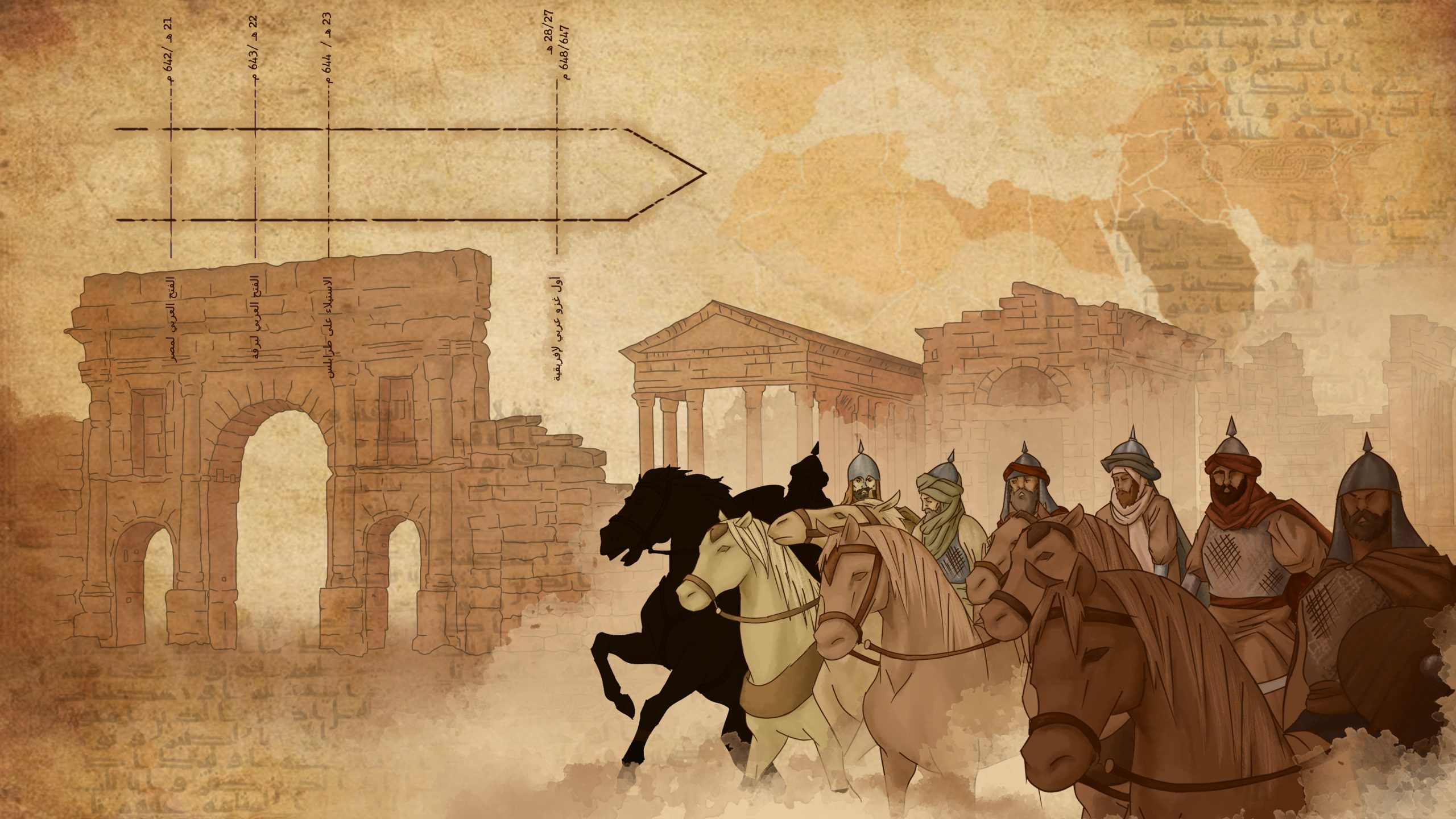 | EPISODE 2Part II : Arab Armies, from Egypt to Ifriqiya | Where did the Berbers come from, according to Arab genealogists of the 9th century ? How did the Arabs conquer present-day Libya ? Were children allowed to command regiments? What was Jerjir, the exarch of Carthage, doing in Sufetula ? How many Abdullahs were there at the Battle of Abadila? Why did Abdallah Ibn Zubair steal the spotlight from the commander-in-chief Ibn Saad ? And why did the Arabs withdraw from Ifriqiya after their resounding victory ? | |
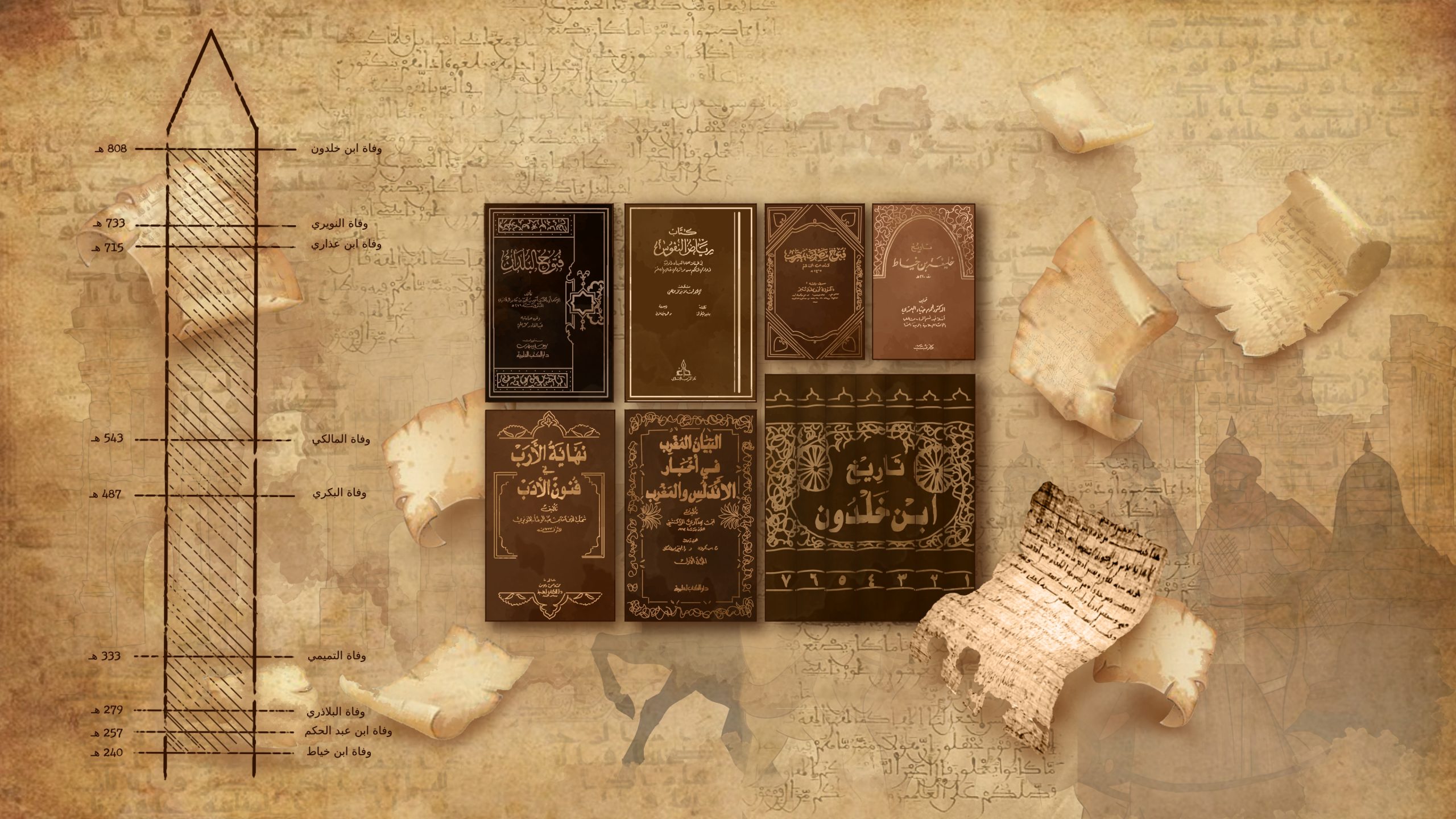 | EPISODE 2Part I : The issue of written sources | When we talk about the beginnings of Islam and the Arab conquests, this question inevitably arises: To what extent can we rely on Arab historical sources written at least two centuries after the events? What about non-Arab and non-Islamic sources? How did the archives of the first two centuries of the Hijra disappear? How do historians determine what really happened when the stories they have are biased towards one side? | |
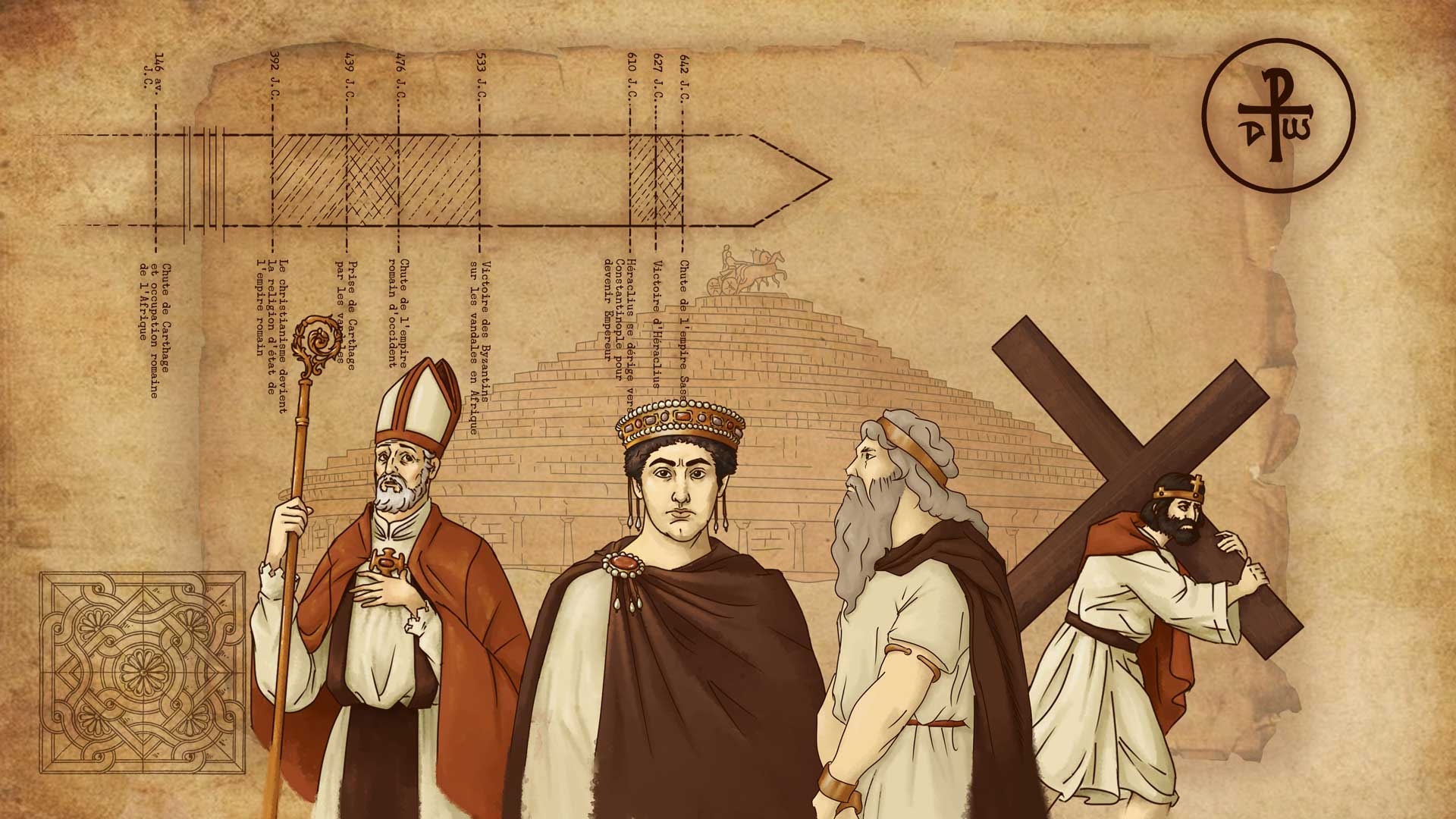 | EPISODE 1Africa towards the end of Antiquity | Moors, Africans (Berbers and Romanized Punics), and Romans: This was the population of Africa, the province of Roman Africa during the last five centuries of antiquity. It was a fervently Christianized population that did not back down in the face of persecutions and religious disputes. In 439, the Vandals, who were a group of newcomers at the time, unsuccessfully tried to impose their Arian church. Although they were driven out by the Byzantines in 533, they were still unwelcome. | |
Recommended for you
A lost life
They were children, and suddenly.. II
They were children, and suddenly..
ABOUT
Inkyfada Podcast is the first platform entirely dedicated to original Tunisian podcasts, and was conceived by Inkyfada media in collaboration with the in-house research and development laboratory, InkyLab. Inkyfada joined the global podcast boom in 2017, when the team produced the first Tunisian audio documentary, diving deep into the belly of the El Kamour struggle taking place in the desert. Since then, Inkyfada Podcast has produced a wide variety of documentaries, investigations, and podcast series, as well as articles accompanied by music; covering a multitude of contemporary issues in order to offer an immersive and alternative podcast experience. Whilst exclusively offering audio content, the Inkyfada Podcast team upholds the same core values and principles of inkyfada.com, and is committed to producing high quality content though a dynamic and meticulous production process. In addition to the permanent team, Inkyfada podcast works closely with various journalists, artists, illustrators, musicians and other content creators in order to diversify the platform and support artistic creativity. These podcasts differ from traditional radiophonic content in that the applied production and editing process is more akin to cinematographic techniques, in addition to being web-based, downloadable and accessible on demand. Additionally, Inkyfada Podcast uniquely offers subtitles in French, Arabic and English for all audio content, the majority of which is recorded in Tunisian or in the preferred language of the speaker in question.




